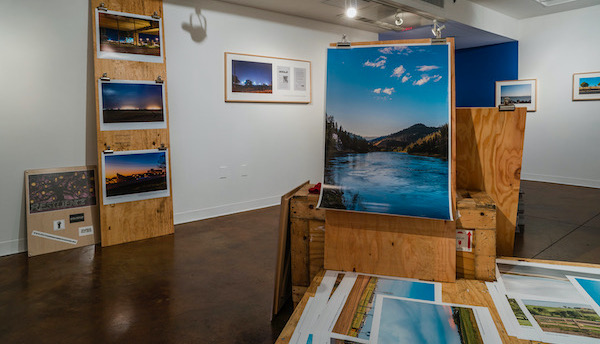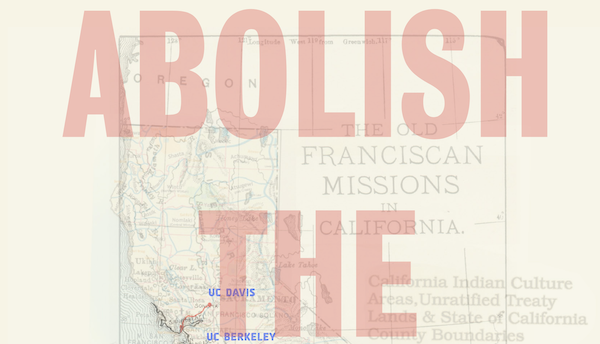
Ashley Hunt: Degrees of Visibility
UCSC Institute of the Arts and Sciences
October 13, 2022 - March 5, 2023
Ruth Wilson Gilmore coined the term “abolition geography” to name the large and small ways that we make freedom out of places. The inverse of abolition geography is carceral geography; the exploitative transformation of space under racial capitalism. Building on The Corrections Documentary Project, a decades-long investigation of the prison-industrial complex, Ashley Hunt’s Degrees of Visibility examines the landscapes that surround prisons, jails, and detention centers throughout the United States and its territories. Consisting of photographs that draw on documentary and pastoral traditions, Degrees of Visibility charts a chilling carceral geography in which questions of architectural design, civic space, land use, and ecological aesthetics center on the problem of the prison’s visual presence. Shot from publicly accessible points of view, these images show how sites of punishment are camouflaged and incarcerated people concealed from view. Focusing on how prisons are hidden or, in some cases, made disturbingly beautiful, Hunt’s work asks what politics of visibility (or invisibility) help shore up the ongoing tragedy of mass incarceration.
Ashley Hunt: Degrees of Visibility is organized by Rachel Nelson and Gina Dent as part of Visualizing Abolition, a public scholarship initiative at UC Santa Cruz designed to shift the social attachment to prisons through art and education. Funding for Visualizing Abolition is provided by the Mellon Foundation.
Artist Bio:
Ashley Hunt is an artist and activist based in Los Angeles who has dedicated his socially engaged practice to documenting the expansion of the North American prison system. Working in a variety of media–including video, photography, mapping, and writing–he explores the institutions that powerfully structure social life, as well as the modes by which they are resisted and unmade. Hunt has collaborated with Project Row Homes in Houston and co-produced the 9 Scripts From a Nation at War for documenta 12. His work has been widely exhibited; recent exhibitions and performances include The Kitchen in New York, Threewalls Gallery in Chicago, the Museum of Modern Art in New York, and the Tate Modern in London. He teaches in the Program in Photography and Media at California Institute of the Arts, and previously contributed work to the exhibition Barring Freedom at the IAS.

